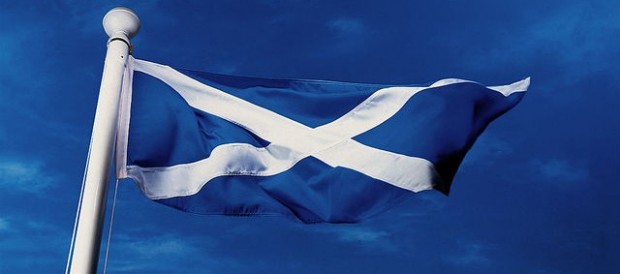Sovereignty and Independence Lite
Despite the fact that my PhD is a contemporary study of the impact technology has had on international taxation law, I’ve found myself delving into the concept of “sovereignty”. The link between international taxation and sovereignty is, in fact, far more significant than it first appears however I’ll bore you with that in a future post.
When considering Sovereignty in Scotland there are two issues: the internal constitutional question as to in whom it vests, and the question of what, externally, it will mean in the future.
The first is fairly straightforward, or at least one would think so. Our Austinian conception of sovereignty was best summarised by Harrison, thus:
The source of all positive law is that definite sovereign authority which exists in every independent political community, and therein exercise de facto the supreme power, being itself unlimited, as a matter of fact, by any limits of positive law.
From a jurists perspective sovereignty is the ultimate source of law within any legal order. It founds executive power, legislative competence, and jurisdiction. Hart would describe it as the “ultimate rule of recognition”.
Even a first year student of Constitutional Law would be able to tell you that sovereignty in the United Kingdom vests in Parliament, and would quote Dicey and Jennings at you until you until they were blue in the face to prove it. Yet this seems to have escaped the SNP’s notice completely.
In November 2007 Alex Salmond wrote:
We in the Scottish Government believe that sovereignty in Scotland lies with its people.
This, the First Minister has re-stated a number of times. But unlike Dorothy in the Wizard of Oz closing your eyes and repeating “there’s no place like home” won’t make it come true. The people of Scotland are not sovereign. Parliament may remain sovereign by common consent but that does not make the people the supreme source of law. Perhaps what Alex Salmond meant to say is that he believes the people of Scotland should be sovereign, which I don’t doubt for a minute.
However sovereignty isn’t merely an element of constitutional law but also an important concept in in international law. Mutual recognition of the sovereignty of other states is one of the fundamental elements of international law. Independence is an essential aspect of that sovereignty, as was discussed by Oppenheim:
Inasmuch as it excludes dependence upon any other authority, and in particular from the authority of another state, sovereignty is independence. It is external independence with regard to the liberty of action outside is borders in the intercourse with the intercourse with other States which a State enjoys. It is internal independence with regard to the liberty of action of a State inside its borders.
If there’s one point of fact on which I’m certain Alex Salmond would agree it is that Scotland is not independent.
This brings me onto the second of the two issues which is what sovereignty will mean in the future. Certainly if Alex Salmond wishes the people of Scotland to be sovereign then Scotland needs to be independent. But how much independence does Scotland need before you can describe it, or its people, as sovereign?
Adapting the old adage, independence is like an elephant – difficult to describe but instantly recognisable. Certainly it is not a binary concept. Even when Oppenheim considered sovereignty and independence in the 1950s sovereign nations were heavily dependent on each other. Nonetheless you’d be hard pressed to claim that a nation lacked independence because of its membership of the EU, or the WTO, or even if it were dependent on foreign aid. Independence does not mean self-sufficiency.
“Independence lite” – which would involve sharing (or, more likely, contracting out) defence, foreign affairs, and even social security – appears to be preferred option of the Scottish Government. What this would involve remains quite unclear. For example, would Scotland and the remainder of the United Kingdom (rUK) have joint, or shared embassies? Would such embassies have a joint ambassador? Or two ambassadors sharing an office? Or one ambassador with two hats? Certainly it seems quite absurd for one person to be accredited as ambassador for two sovereign nations.
Presumably Independence lite means sharing a place on the world stage. We would remain a single Member State of the European Union, our membership of the United Nations would still be through the United Kingdom, and we would still sign treaties as a single entity. In that circumstance it’s hard to see how Scotland would be externally independent as Oppenheim describes, and would therefore lack one of the essential components of sovereignty in international law. From an external perspective Independence-lite would not appear to be any different from Devolution-max.
The difference, therefore, between Indy-lite and Devo-max appears to be one of internal sovereignty. Devolution max would preserve the unitary state, with sovereignty continuing to vest in the UK Parliament. Independence lite would effectively create a confederated state – two internally sovereign nations within one externally sovereign state. Within those nations internal sovereignty could vest differentially. One would expect that within rUK Sovereignty would continue to vest in Parliament, while in Scotland it would vest in the people.
Independence-lite may well create the internal appearance of sovereignty – certainly Alex Salmond’s belief that the people of Scotland should be sovereign could be realised. But it’s difficult to see how such a settlement could be objectively described as “independence”.

